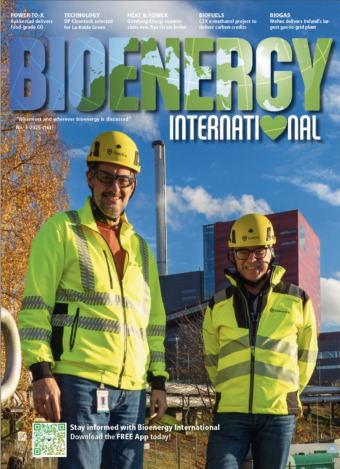Germany-headed Bayer AG, a global enterprise with core competencies in the life science fields of health care and agriculture, and Finland-headed oil refiner and renewable products major Neste Oyj have signed a Memorandum of Understanding (MoU) aimed at developing a winter canola ecosystem in the United States (US), including identifying partners and developing the value chain together, and scaling winter canola production as a raw material for renewable products.
Within the collaboration, the companies are going to develop a winter canola ecosystem in the Southern Great Plains of the US, including product development and additional collaborations to enable Bayer to enter this market.
Bayer aims to launch a hybrid TruFlex winter canola in 2027, which the company says offers many benefits to farmers as it includes “Roundup Ready and pod shatter resistance technology, delivering excellent product stability and performance.”
Used as a new alternative rotational crop, winter canola helps sequester carbon in the soil and can improve soil health by increasing its organic matter content and water-holding capacity, leading to enhanced soil fertility and productivity.
We are excited to partner with Neste to enable profitable new crop options for farmers while delivering on the unmet demand for renewable fuel. We believe our next-generation TruFlex products will provide farmers with a new profitable rotational crop option while offering potential sustainability benefits such as increased biodiversity, soil health, and agronomic rotation to reduce pest, disease, and weed pressure. Bayer is committed to continuing to lead the way with alternative biomass-based feedstocks and regenerative agricultural solutions, said Jennifer Ozimkiewicz, Head of Crop Strategy Soy & Biofuels at Bayer’s Crop Science Division.
Expand renewable feedstock pool
Leading up to the launch, Bayer will work with Neste, the value chain, and farmers to introduce winter canola as a biomass-based feedstock that delivers fuel with lower carbon intensity than traditional fuel sources.
Bayer and Neste expect to finalize a definitive agreement in 2025.
This collaboration with Bayer strengthens our strategy to develop together with value chain partners regenerative agriculture concepts that can be scaled up and can play an important role in diversifying and growing the raw materials pool for all of our renewable products. We believe winter canola can bring environmental benefits to cropping systems and result in lower carbon intensity feedstocks that help replace fossil resources with renewable raw materials said Artturi Mikkola, SVP Feedstock Sourcing & Trading at Neste.
While having a strong focus on waste and residue raw materials, Neste continues to actively explore and develop other types of renewable raw materials, such as novel vegetable oils produced by regenerative farming practices.
Regenerative farming practices aim to trap carbon in healthier soils, promote biodiversity, and reduce emissions from agriculture while increasing farm productivity.
Neste is working together with value chain partners in several regions globally, collaborations varying from smaller field trials studying the sustainability benefits of selected concepts to more mature projects using different regenerative agriculture practices.
The aim is to identify the most promising concepts that can be scaled up and can play an important role in diversifying and growing Neste’s raw materials pool for renewable products.
This collaboration with Bayer aligns with Neste’s efforts to develop regenerative agriculture concepts. Used as a new alternative rotational crop, winter canola fits well into our novel vegetable oil concepts. Winter canola not only has the potential to result in lower carbon intensity raw material but can also bring additional environmental benefits to cropping systems and provide farmers with new income opportunities, Artturi Mikkola said.
Multipurpose rotational crop
Winter canola, used as a rotational crop in combination with regenerative agriculture practices, can improve soil health and sequester carbon, contributing to more sustainable farming.
In addition, they can provide farmers with new revenue streams through the cultivation of biomass-based feedstocks.
The resulting lower carbon intensity raw material can then be used to produce renewable fuels like sustainable aviation fuel (SAF) and renewable diesel, which can significantly reduce greenhouse gas (GHG) emissions over the life cycle compared to fossil fuels.
Renewable fuels are playing an important role in the decarbonization of transportation and energy while global targets continue to shape biofuel markets and accelerate demand for biomass-based feedstocks going forward. We are committed to supporting farmers’ ability to deliver low-carbon feedstocks on demand, through investments in new crops like winter canola and advancement in sustainable cropping systems, said Frank Terhorst, Head of Strategy & Sustainability for Bayer’s Crop Science Division.



